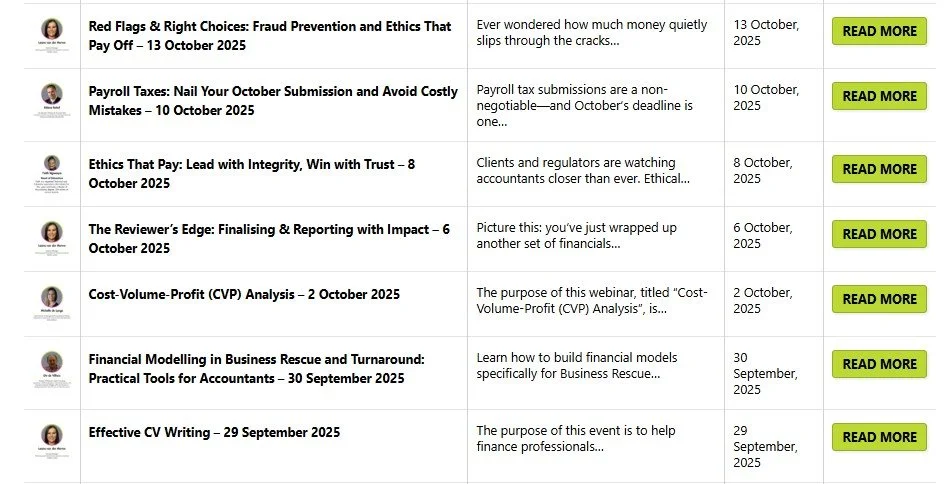Half the Reason Employees Stay Is Their Pay — The Rest Is Up to You
This article will count 0.25 units (15 minutes) of unverifiable CPD. Remember to log these units under your membership profile.
Accountants in South Africa are working at the frontline of the Fourth Industrial Revolution (4IR). Artificial intelligence, automation, and big data are changing the way you do business. But here is the reality: while technology is reshaping the profession, it is not just systems and processes at stake, it is people.
A 2023 study by The CEO Forum Institute showed that only 51% of employees stay because of pay and benefits. The other half are sticking around because of leadership, growth opportunities, and whether they feel like they belong. In other words, money may get someone through the door, but it will not keep them loyal.
In South Africa, where accountants face skills shortages, crushing workloads, and endless compliance headaches, this matters more than ever.
Why Leadership Matters More Than Ever
The best leaders today do not just understand debits and credits. They understand people and technology. If you are digitally savvy, innovative, and emotionally intelligent, your team will see technology as an opportunity, not a threat. If you are not, the risk is simple: accountants and practices that do not adapt will fall behind.
What this means for you:
Strong leadership keeps your team engaged and resilient.
It positions you and your practice as forward-thinking, not replaceable.
It opens the door to new revenue opportunities instead of leaving you stuck with outdated services.
Change Management: The Difference Between Chaos and Growth
Change has always been part of accounting, but 4IR has hit the fast-forward button. New platforms, tax rules, and reporting systems arrive faster than most firms can keep up. The difference between surviving and burning out is how you handle that change.
Open communication, practical training, and involving your staff in every step smooth the process. Skip these, and you will end up with more mistakes, more stress, and more late nights.
For accountants, the impact is clear:
✔ Less firefighting, more focus on high-value work
✔ Stronger teams who adapt quickly
✔ Better client service because you are not constantly stuck in crisis mode
Engagement and Burnout: The Real Retention Battle
Engagement is not about being “happy at work.” It is about energy, focus, and commitment. When accountants are engaged, they are motivated and productive. When they are not, burnout is around the corner.
And burnout is not just an HR problem, it is a business killer. A global 2025 study found 82% of employees are at risk of burnout, costing billions in lost productivity. For younger professionals, it is even worse: 68% of Gen Z and 61% of millennials say burnout is why they are thinking of leaving their jobs.
In South Africa, where accountants already juggle endless SARS queries, new compliance demands, and client pressure, the risk is off the charts.
The message is simple: salary attracts, but engagement and avoiding burnout retain.
Your Chance to Contribute
To explore these challenges in more detail, a candidate completing a PhD qualification at a university is conducting a research survey. CIBA is making this survey available to our members so that your experiences and insights can contribute to this important academic work.
If you take 10 to 15 minutes to complete it, here is what happens:
You highlight challenges: workload, compliance, tech disruption, burnout.
You shape solutions: your feedback will feed into research that can help identify practical strategies for the profession.
You strengthen the profession: ensuring that South African accountants are equipped to thrive in the global 4IR economy.
The survey is anonymous, but its impact will be powerful. The findings will form part of the candidate’s PhD research and can help surface insights that benefit accountants across the country.
👉 Click here to take the survey
This is not just about your job, it is about contributing to research that supports the future of the profession.








